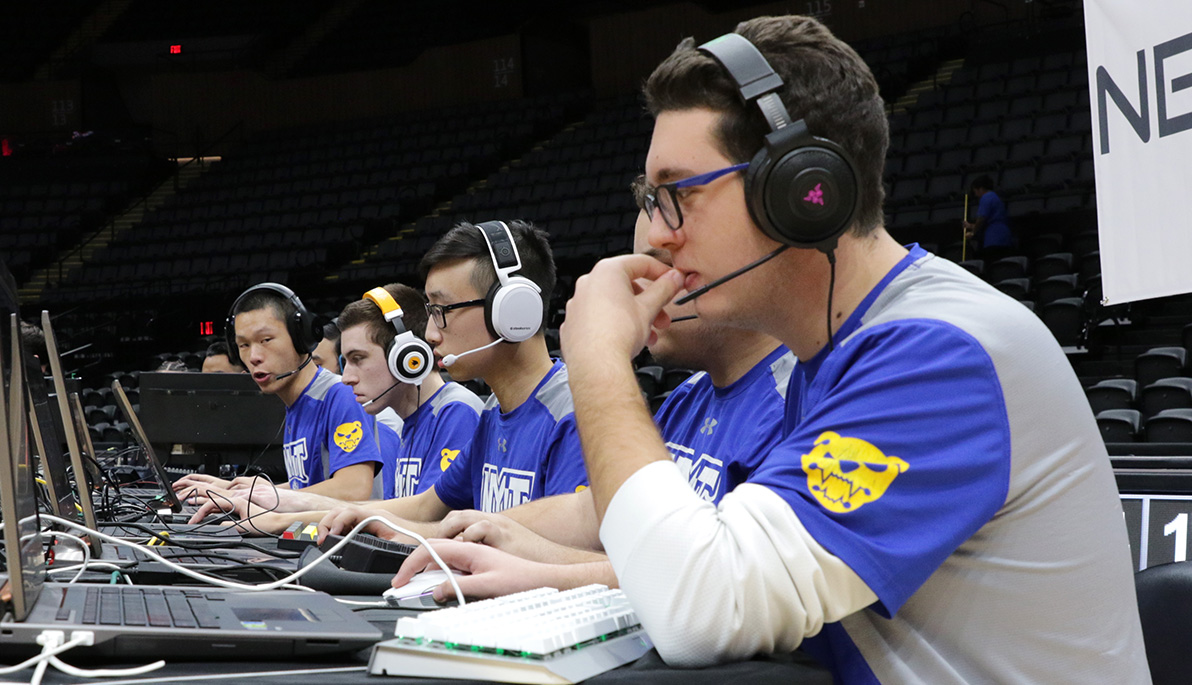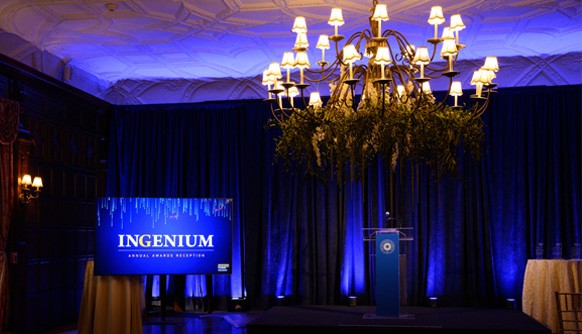News
How to Turn Gaming into a Career
October 6, 2021
Pictured: The New York Tech Cybers compete against Molloy College at Nassau Coliseum in 2018.
On September 30, Hallie Zwibel, D.O., assistant dean of clinical operations and director of the Center for Esports Medicine at New York Tech, participated in a virtual discussion on Newsday Live for an in-depth look at how gaming can become a viable career path. Zwibel joined moderator Laura Albanese, Newsday’s special writer for sports; Dennis Buchanan, founder of The Long Island Gaming League; and Mark Alban, a student at Molloy College and member of the school’s Rocket League esports team.
Competitive video gaming can offer students the opportunity to join college teams, procure scholarships, and play professionally. According to Albanese, the rise of esports has been going on for years, and competitive gaming will be a multibillion-dollar industry within the next ten years.
“I’ve seen it grow since 2019, with more interest and opportunities,” added Buchanan. “Twitter allows you to connect with other gamers or join a gaming league. [And], every year, more games are put out with more content,” he said.
Zwibel pointed out that there is a lot of misconception about the future of gamers. “There are many opportunities for a career in esports,” he said. Possible career paths include communications, writing, developer, fashion designer, coder, game development, and event planner.
“Skill sets you learn in games can be used in the real world,” said Buchanan.
“There are real jobs out there that are well paid,” added Zwibel. “You can use skills you learned in gaming to make a real career for yourself.”
The best strategy to create a successful gaming career, according to Alban, is to start young, do the research, find tournaments to compete, then practice and put in the time as any athlete would need to do. Alban received a $5,000 a year scholarship to Molloy College through gaming. “Pick a game that has a competitive scene,” he advised.
One thing to note is that gaming is not a solitary sport, played alone in the dark. There is a strong sense of community among gamers. “People don’t realize that most of the games are team-based, and there are lots of studies that show that people feel engaged in their community through esports,” explained Alban. “The community on Long Island is amazing. I have met people from all over the world.”
Zwibel has worked with many gamers and pointed out the medical advantages of the sport. “There is research that it enhances cognitive processing and fine motor skills,” he said. “Gamers are taking advances from sports science to learn how to become better players.”
New York Tech’s Center for Esports Medicine serves as the Cybears’ official team of physicians, providing health guidance and care to more than 80 esports athletes.
The panel offered a positive perspective on the future of gaming partially due to the increase in big company sponsorships and enhanced publicity. Buchan predicted “it will grow globally because of the Internet and how people are connecting. It will create fans. It will become that global game that everyone will watch at the same time.”
Reach out to Head Coach Elieser Duran to learn more about the New York Tech Cybears.

By Carol Lane


_Thumb.jpg)

